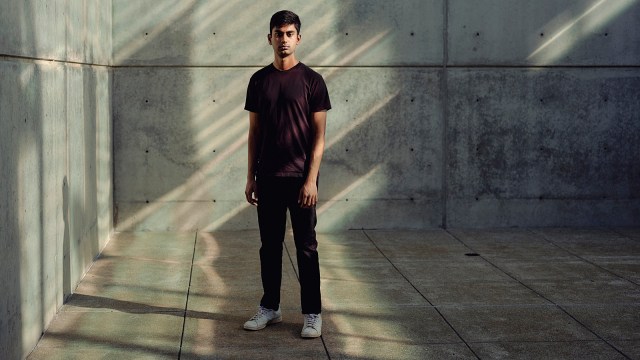Stay updated with the latest - Click here to follow us on Instagram
Indian-American OpenAI whistleblower Suchir Balaji found dead in US apartment
Balaji’s death has reignited debates about the ethical and legal implications of AI technologies.
 Suchir Balaji, a former OpenAI employee. (Photo: New York Times)
Suchir Balaji, a former OpenAI employee. (Photo: New York Times)Suchir Balaji, an Indian-American former researcher at OpenAI who had publicly criticised the company’s practices, was found dead in his San Francisco apartment on November 26.
The 26-year-old’s death has been ruled a suicide, with authorities reporting no evidence of foul play.
Balaji, who left OpenAI in August after four years, was a prominent voice raising ethical concerns about the use of copyrighted materials to train generative AI models like ChatGPT.
“I recently participated in a New York Times story about fair use and generative AI, and why I’m sceptical ‘fair use’ would be a plausible defence for a lot of generative AI products. I also wrote a blog post about the nitty-gritty details of fair use and why I believe this,” Balaji had written on X.
I recently participated in a NYT story about fair use and generative AI, and why I’m skeptical “fair use” would be a plausible defense for a lot of generative AI products. I also wrote a blog post (https://t.co/xhiVyCk2Vk) about the nitty-gritty details of fair use and why I…
— Suchir Balaji (@suchirbalaji) October 23, 2024
In a separate interview with the New York Times, Balaji described OpenAI’s approach to data collection as harmful. “If you believe what I believe, you have to just leave the company,” he said, expressing concern over the training of GPT-4 on massive amounts of internet data.
Balaji’s concerns centred on how generative AI systems could produce outputs that compete with the original copyrighted works used in their training. In a blog post cited by the Chicago Tribune, he argued, “No known factors seem to weigh in favour of ChatGPT being a fair use of its training data.” He noted that this issue extended beyond OpenAI, saying, “Fair use and generative AI is a much broader issue than any one product or company.”
The lawsuits against OpenAI, including those from major media outlets such as The New York Times, claim that the company’s practices infringe on copyright laws. Balaji was named in court documents as someone with “unique and relevant documents” to support the lawsuits.
OpenAI has consistently denied these allegations. In a statement reported by the Chicago Tribune, the company said, “We see immense potential for AI tools like ChatGPT to deepen publishers’ relationships with readers and enhance the news experience.”
Balaji’s death has reignited debates about the ethical and legal implications of AI technologies.
In the last two years, many individuals and businesses have sued various AI companies, including OpenAI, arguing that they illegally used copyrighted material to train their technologies. In December, The New York Times sued OpenAI and its primary partner, Microsoft, claiming they used millions of articles published by the Times to build chatbots that now compete with the news outlet as a source of reliable information. Both companies have denied the claims.
- 01
- 02
- 03
- 04
- 05































